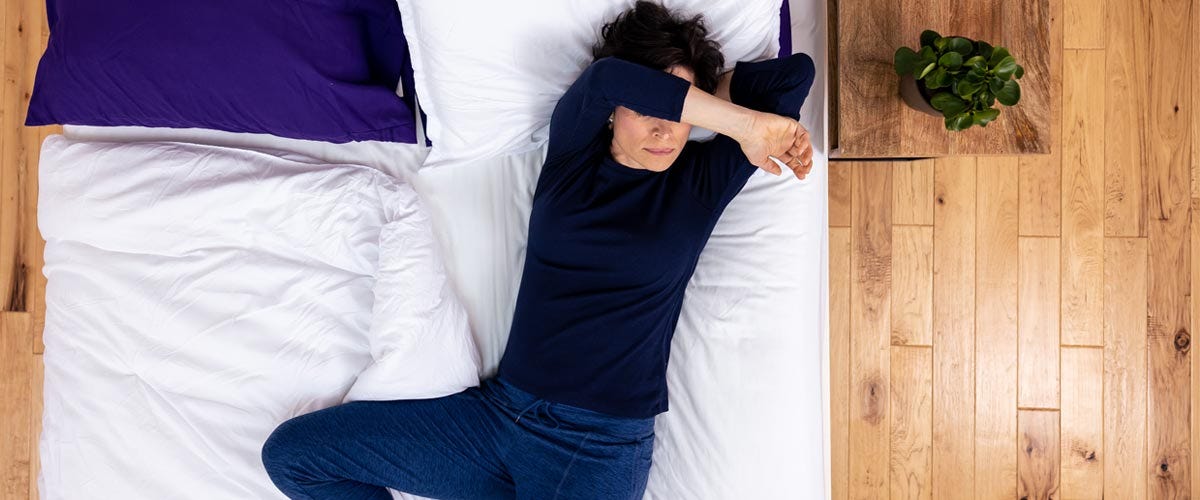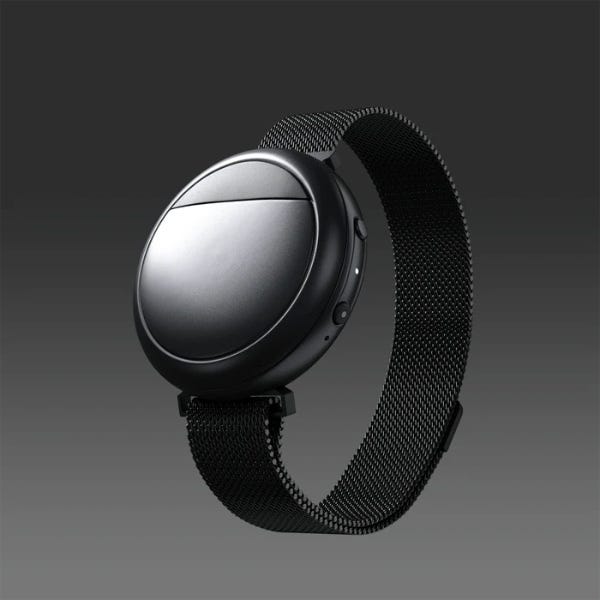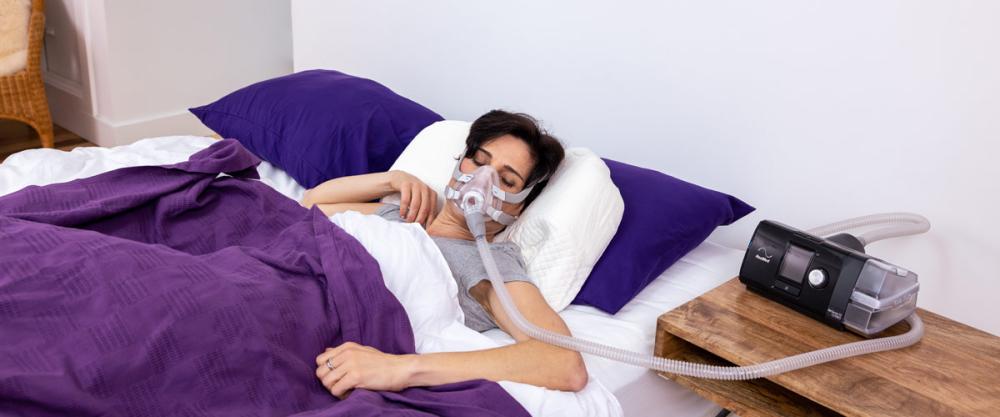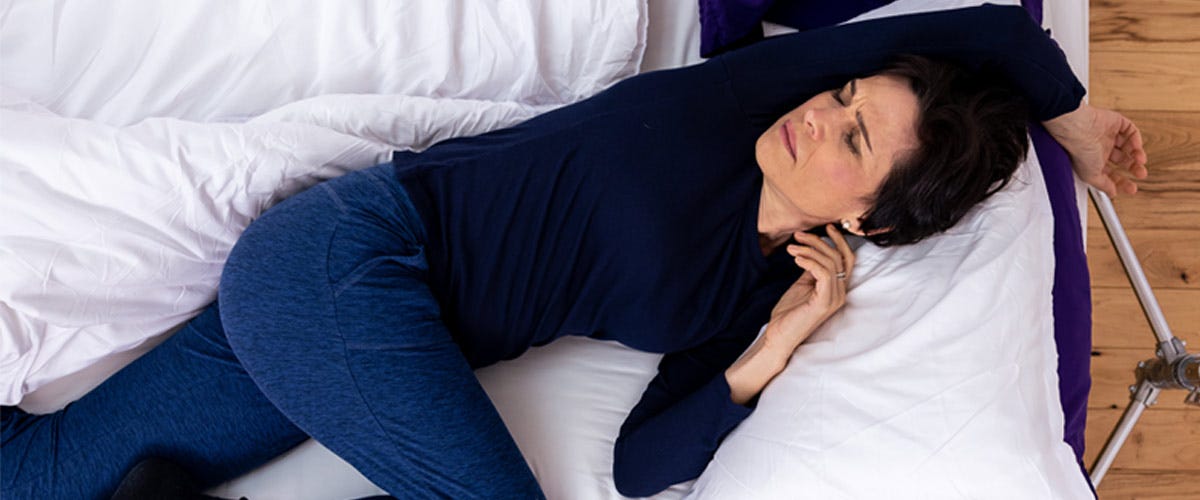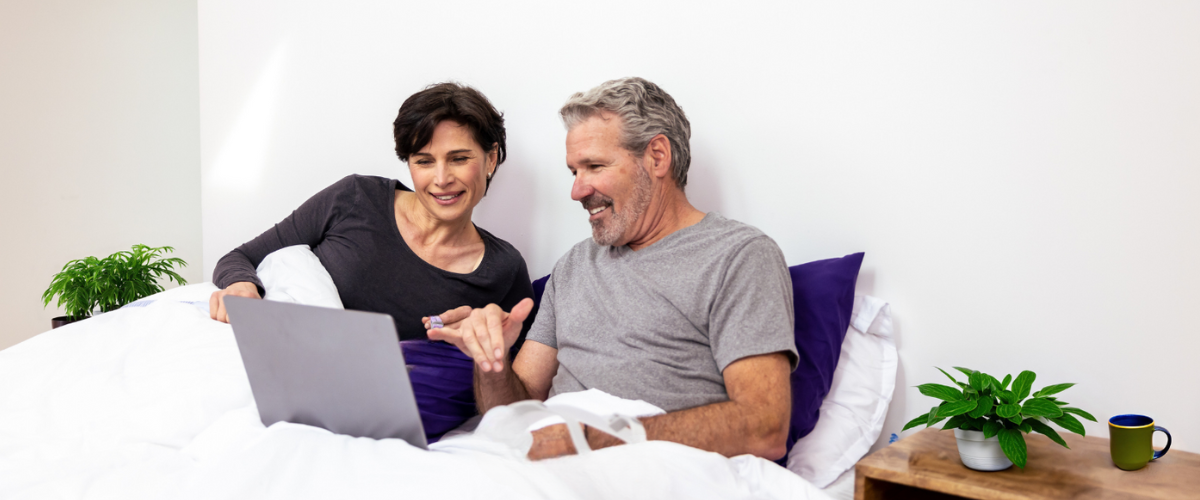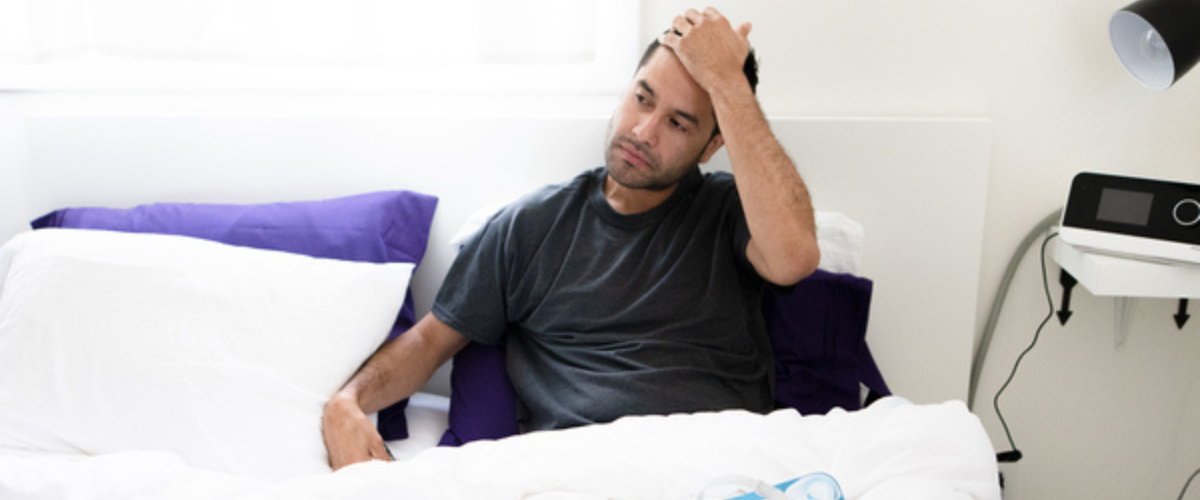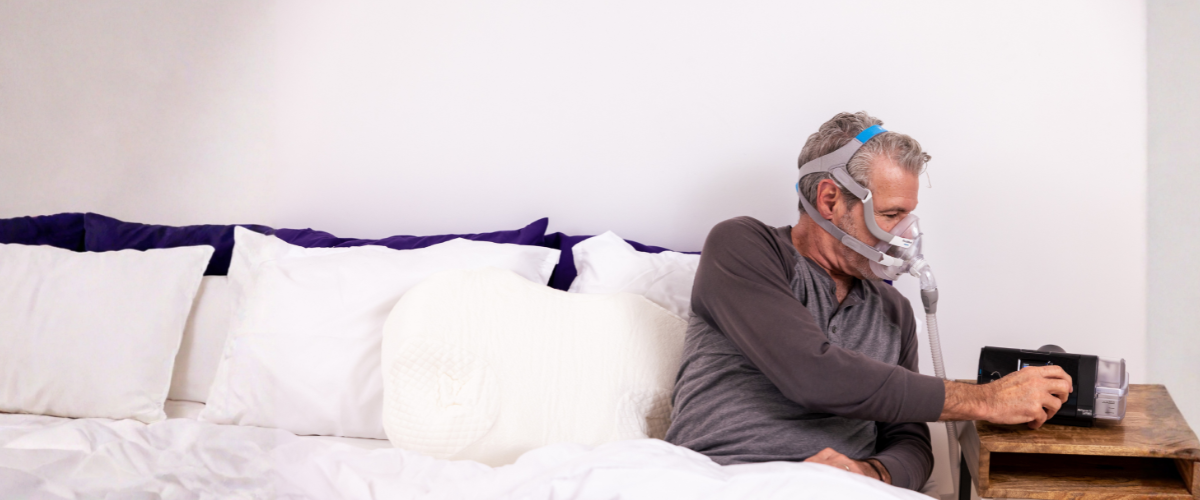Our body temperature plays a big factor in our sleep quality, something you probably already know if you’re a hot sleeper. And sleep temperature is dependent on a lot of things besides the thermostat setting. Hormonal changes, menopause symptoms, and medical conditions can all play a part. In this article, we’ll explain how to regulate our sleep environment in conjunction with our natural body heat to find an ideal sleep temperature.
Why Do I Get So Hot When I Sleep?
We’ve all been there, drifting off to sleep feeling snug and cozy in your bed, only to wake up in the middle of the night overheated, sweating, and irritated. Suddenly your sheets and blankets feel suffocatingly hot. So much for a good night’s sleep. The longer and more frequent these interruptions, the more irritated we become, and all the more time the mind has to start racing with stressful thoughts. A night like this doesn’t make for a great start for the next day.
It’s tempting to think that if we are comfortably warm as we drift off to sleep, we’d stay that way throughout the night. But that’s not the case. As the body settles into sleep, our core body temperature drops slightly, and stays at a lower temperature during the night.
As the core temperature decreases, its heat is transmitted into our extremities via our blood vessels. This excess heat can cause us to wake up if it’s not effectively dispersed, or if it’s the result of various other factors. Here we explore a few reasons some people aren’t able to cool off as effectively as others.
Hormonal Changes
Hot sleeping is often associated with perimenopause and menopause, the time during which a woman’s ovaries make less estrogen, and menstrual bleeding becomes irregular and eventually stops. Hot flashes are one of the most common symptoms of menopause and they can be quite disruptive. During a hot flash, a woman will experience a sudden feeling of intense warmth that spreads over the entire body, causing excessive sweating, skin flushes, and sometimes an elevated heart rate or feeling of anxiety.
Hot flashes that happen during the night can cause night sweats. After a hot flash subsides, many women feel a sudden chill. It’s easy to see why these symptoms can wreak havoc on your sleep quality. The body’s ability to regulate temperature is temporarily impaired due to changing hormone levels, but luckily there are some innovative tools to help level out these fluctuations.
Aside from menopause and perimenopause, women of reproductive age experience an slight increase in core body temperature during the luteal phase of their menstrual cycle due to a surge in the hormone progesterone. It does not cause hot flashes, but it can make you feel hot.
Wearables like apple watch and fitbit have released lots of new wellness features to help improve sleep, but the Embr is one of the only wearables to help regulate temperature. The Embr Wave 2 is worn on the inside of the wrist and changes the skin temperature there, which sends warming or cooling sensations throughout the body. It an be used in the event of a hot flash to cool down. It can also be used in warming mode when you feel chills.
Ambient Temperature
In addition to light cues, our circadian rhythm offers temperature clues to the brain and body when it’s time to sleep. A lower temperature is associated with better sleep, and a too-hot room can make it more difficult to sleep. Adjusting the bedroom temperature to a few degrees below where you would normally keep it during the day is one way to prevent overheating.
Experts suggest the ideal temperature for sleep is between 60 and 67 degrees fahrenheit. If you have a sleeping partner who would beg to differ with this recommendation, rest assured you have science on your side! You can turn on your ceiling fan or set your thermostat to automatically activate the air conditioning as needed to reach your sleep temperature during hot weather.
Bedding and Sleepwear
The next part of the environment to consider is your bed itself. You’ve likely noticed a wealth of new wellness products on the market designed specifically for hot sleepers to stay cool. Sheets, comforters, mattresses, pajamas, and more now come with cooling elements.
Cooling sheets are often made from natural materials like cotton or bamboo; these fabrics promote good airflow during the night so heat doesn’t get trapped. If you experience night sweats, you’ll want to find a fabric that wicks away moisture.
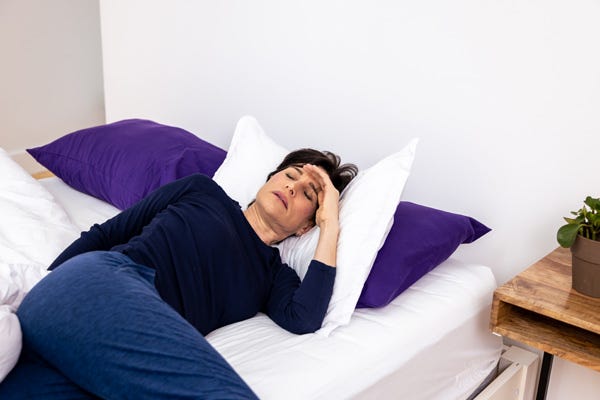

When it comes to mattresses and mattress toppers, look for options other than regular memory foam, which traps heat. Modern mattresses use a variety of materials to achieve effective heat displacement, including gel, copper, ventilated foam, and phase changing materials (PCMs.) A quick google search for ‘cooling mattress’ will yield a lot of results to choose from.
Luckily, there are now ‘cool’ versions of PJs as well, because while that old t-shirt and sweats may be comfortable, they’re not doing you any favors when it comes to your sleep temperature.
Medications and Conditions
Some medications have side effects that cause people to ‘run hot’ and sweat more than usual, and not exclusively at night. These include antidepressants, diabetes medications, and some hormone therapy drugs.
Some medical conditions also cause higher body temperature or night sweats including hyperthyroidism and infection/fever, and yes, sleep disorders like obstructive sleep apnea.
Apneas (the pauses of breathing that happen in people with sleep apnea) trigger the release of stress hormones. When you stop breathing, your body releases adrenaline, cortisol, and other stress hormones in an attempt to restart your breathing. Not surprisingly, this can cause sweating and elevated heart rate and blood pressure.
If you think your night sweats are a symptom of a medical condition, it’s imperative that you speak with your healthcare provider.
Resources
Ambardekar, N. (n.d.). Sleep: What happens to body temperature, brain activity, and breathing. WebMD. https://www.webmd.com/sleep-disorders/what-happens-body-during-sleep
The best temperature for sleep. Cleveland Clinic. https://health.clevelandclinic.org/what-is-the-ideal-sleeping-temperature-for-my-bedroom/
Okamoto-Mizuno, Kazue, and Koh Mizuno. “Effects of Thermal Environment on Sleep and Circadian Rhythm.” Journal of Physiological Anthropology, 31 May 2012, www.ncbi.nlm.nih.gov/pmc/articles/PMC3427038/
“Introduction to Menopause.” JHM, 19 Nov. 2019, www.hopkinsmedicine.org/health/conditions-and-diseases/introduction-to-menopause
“Hot Flashes.” Mayo Clinic, 20 May 2022, www.mayoclinic.org/diseases-conditions/hot-flashes/symptoms-causes/syc-20352790
Viera, Anthony J., et al. “Diagnosing Night Sweats.” American Family Physician, 1 Mar. 2003, www.aafp.org/pubs/afp/issues/2003/0301/p1019.html
Ting, Dr. Selene. “Drug-Induced Hyperhidrosis.” DermNet, https://dermnetnz.org/topics/drug-induced-hyperhidrosis







